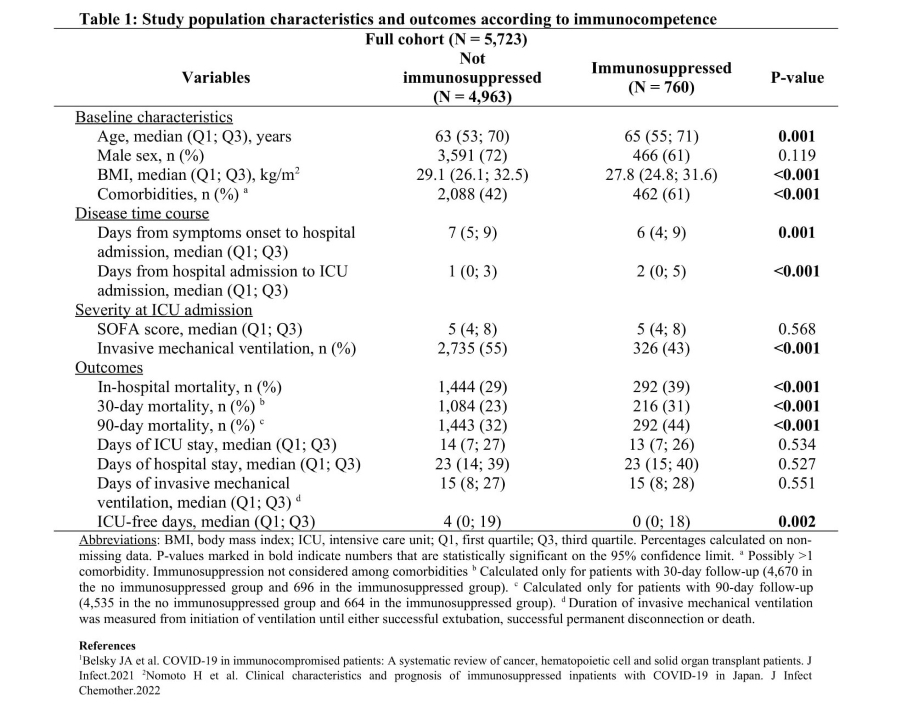Abstract
Background: Immunosuppressed patients could be considered at increased risk of severe COVID-19 pneumonia although, to date, few studies describe their clinical course in ICU setting,1,2 mostly in small sample sizes. The aim of this study was to describe their clinical features and outcomes in comparison with not immunosuppressed patients.
Materials and methods: Multicenter, observational case-control study including COVID-19 patients admitted to 55 Spanish ICUs (NCT04457505). Main clinical characteristics, complications and outcomes were analyzed in immunosuppressed and not immunosuppressed patients.
Results: Between February 2020 and October 2021, 5723 patients were included. Among them, 760 (13%) were immunosuppressed, while 4963 (87%) were not immunosuppressed. Immunosuppressed patients had more comorbidities (p<0.001), their time from symptoms onset to hospital admission was shorter (p=0.001) but they were transferred to ICU later (p<0.001). At ICU admission, they received less frequently invasive mechanical ventilation (p<0.001). Immunosuppressed patients had lower ICU-free days (p=0.002) and higher in-hospital, 30-day, 90-day mortalities (p<0.001) (Table 1).
Conclusions: Immunosuppressed patients admitted to ICU for COVID-19 pneumonia had both poorer clinical course and mortality outcomes compared to not immunosuppressed.